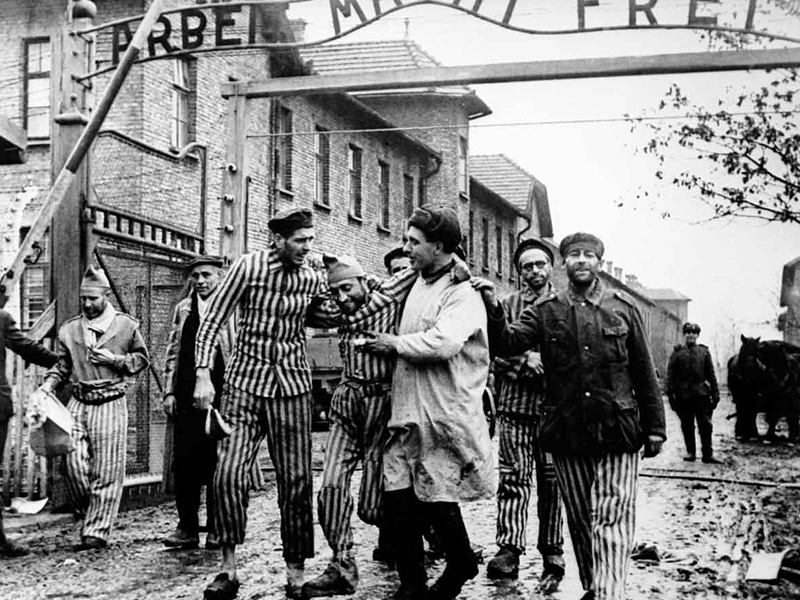The western Holocaust narrative tends to be one of victimhood and “never again,” while the Soviet narrative tends to be about revenge.
That was the central point stressed at a panel discussion Nov. 2 at the University of Toronto as part of Holocaust Education Week.
Titled “The Red Army and the End of the Holocaust,” the event was the Annual Wolfe Lecture on the Holocaust, presented by the Chancellor Rose and Ray Wolfe Chair in Holocaust Studies, the Neuberger Holocaust Education Centre, UJA Federation of Greater Toronto, U of T’s faculty of arts and science, and the Anne Tanenbaum Centre for Jewish Studies at U of T.
The panel, attended by about 100 people, was moderated by Doris Bergen, the Chancellor Rose and Ray Wolfe Professor of Holocaust Studies at U of T and comprised Anna Shternshis, acting director of the Anne Tanenbaum Centre for Jewish Studies and an associate professor of Yiddish at U of T, and Zvi Gitelman, a professor of Judaic studies at the University of Michigan.
The conversation was framed by Bergen’s explanation that although the Soviet military is known for liberating Auschwitz and other concentration camps, the concept of the Soviets as liberators has been somewhat underplayed.
“This has to do with the multiple and sometimes contradictory roles played by the Red Army and the Soviet Union during the Holocaust,” she said, explaining that the Soviet Union went from being “the ideological foe of Nazi Germany” to, after 1939, Germany’s partner in dividing Poland and destroying large parts of eastern Europe.
The Soviet Union was both the site of mass killings of Jews and, in Siberia and parts of the interior, a refuge for at least half a million Jews during World War II.
Shternshis and Gitelman both shed light on the responses of Jewish and non-Jewish Red Army soldiers as they came upon the horrors of the Holocaust from 1943 onward, emphasizing that desire for revenge was extremely evident.
Shternshis, who has studied oral histories, literary texts and personal sources such as diaries and written correspondences between Red Army soldiers and relatives while serving, said that every former Jewish Red Army soldier she interviewed “talked about the importance of executing personal revenge for what happened to their families. I heard so many quotes like, ‘The Germans killed all my family, I’ll kill even more of their family… I saw letters where a wife wrote in Yiddish to her husband in the Red Army to ‘Kill [Germans] and show no mercy.’”
She referred to works of Soviet poetry written during the period – both in Russian and in Yiddish – that she said show, “an aggressive call for revenge… and [are] all about the physical extermination of the Germans.”
Gitelman, who has studied sources such as military-commissioned reports and Soviet and Yiddish press materials from the period, noted that among World War II’s many “dirty little secrets” were the unofficial acts of revenge by Red Army soldiers – Jewish and non-Jewish. For instance, the mass rape of German women, of which Soviet soldiers in particular were guilty, was a form of “retaliatory humiliation.”
Shternshis said the average Red Army soldier encountered the Holocaust by directly witnessing sites of carnage – such as the mass graves they came across as they advanced eastward in 1943 – and by reading about it in the press or hearing of atrocities from family members’ letters.
From hundreds of interviews she conducted with Jewish Red Army veterans, Shternshis learned that many Jewish soldiers and officers who helped liberate Ukraine asked, “Where are all the Jews? Where are my relatives?” By 1943, she said, Jews in the army who had thought of themselves as more Russian than Jewish had seen the extermination of their people and this marked “the watershed line… where many started switching to thinking of themselves as Jews.”
